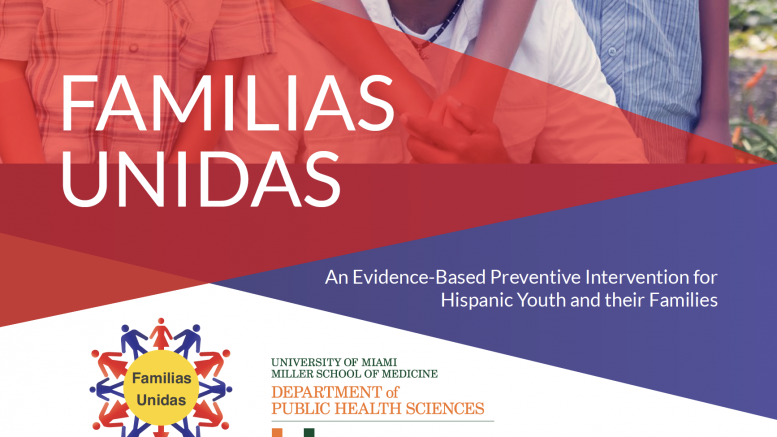By: Nicole Heller / Contributing Writer
During a talk at FIU, students learned about the importance of teaching Hispanic parents how to be the “change agent” in relationships.
This is part of a research program by the University of Miami to reduce health risk behaviors among Hispanic youth.
Guillermo “Willy” Prado came to FIU to speak about his research program Familias Unidas, which means united families, in order to “disseminate it and take it out of the lab” as he said in his talk, hosted on Feb. 21 at the Academic Health Center 1.

He is the Dean of the University of Miami’s Graduate School. He was born from immigrant parents but raised in the United States, and he felt curious about “exploring the prevention side of the story.”
He had the urge to develop a project to help Hispanic parents to break cultural barriers. The program aims to help them prevent problem behaviors, including conduct disorders, illicit drug abuse, alcohol use, cigarette use, and others.
Familias Unidas accomplishes its goals by providing them skills to effectively deal with youth substance use and risky behaviors by educating them on parental communication.
Prado also said that they “currently work with about half of the middle schools located in Miami-Dade County by training councils and social workers to be able to deliver the intervention within their communities.”
The guest speaker said that although the parent and children’s engagement rate is 78%, 22% have been difficult to engage in the intervention.
“This was the moment when eHealth came to mind,” said Prado.
The goal of eHealth is to engage all of those people who were not able to attend the sessions because of different reasons.
Today, he can confirm that “eHealth interventions have shown significant promise in overcoming barriers to participation.”
The digital system consists of three components to maximize the chances to engage these families.
The first one is that eHealth includes a “telenovela series”, as he describes it, which consists of eight short and engaging episodes that talk about each topic. Telenovelas are traditional Hispanic soap opera-style shows.
The second component is a live session with real parents and one facilitator to see other parents processing some of the topics which were introduced in the telenovela.
The third asset is an interactive element that will pop-up in front of the participant’s computer in order to make them feel more active and engaged.
He said that the program is now being implemented in Ecuador and Chile.
“Chile is allocating federal budget to implement the intervention in the country,” said Prado.






Be the first to comment on "South Florida Program Aims To Teach Hispanic Parents How To Be Better"